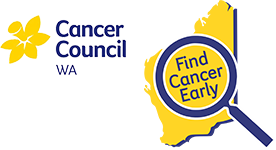Get to know prostate cancer clues
Miss Jolly said early detection was key to improving the chances of successfully treating cancer.
This article was written by Phoebe Pin and published in the Kalgoorlie Miner on 21 September 2019.
Goldfields men are being encouraged to familiarise themselves with common cancer symptoms this Prostate Cancer Awareness Month, with an estimated one in eight Australian men diagnosed with the cancer in their lifetime.
Prostate cancer is the most commonly diagnosed cancer among men in WA, but there is no test with sufficient accuracy to screen the male population for the cancer.
Goldfields regional education officer Rachel Jolly said it was vital Goldfields men visited their local medical service if they were experiencing some unusual symptoms to determine their cause as soon as possible.
“Common symptoms of prostate cancer include waking frequently at night to pee, a sudden or urgent need to pee, difficulty controlling the bladder or the bladder not feeling empty after peeing, difficulty starting or stopping peeing, unexplained weight loss, needing to pee more often, a slow flow, pain, or dribbling at the end of peeing,” she said.
“If you have had any of these symptoms for more than four weeks, or you’ve noticed blood in your pee or semen even just once, tell your doctor, clinic nurse or Aboriginal health worker as soon as possible.
“It doesn’t mean you’ve got prostate cancer — often it turns out to be something far less serious and your doctor may be able to help reduce the annoying symptoms.”
Miss Jolly said early detection was key to improving the chances of successfully treating cancer.
“In 2017, there were 2093 new cases of prostate cancer recorded compared to 270 deaths, which means that thousands of Western Australian men are successfully treated for prostate cancer,” she said.
“Treatment is most effective when cancer is found at an early stage, so finding cancer early can make a real difference.”
For more information about prostate cancer and how to identify the symptoms, visit findcancerearly.com.au or call Cancer Council’s information and support line on 13 11 20.
